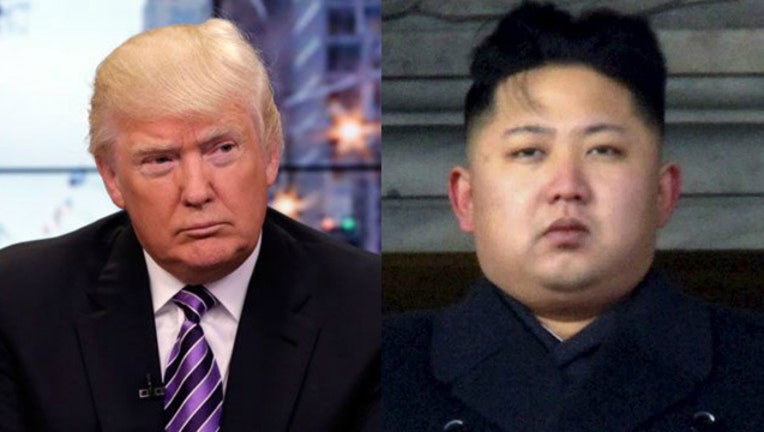U.S. officials: N. Korea's nukes may be a tactic for taking over S. Korea

WASHINGTON (AP) - North Korea's nuclear weapons development may be designed to take over archrival South Korea and coerce the United States into abandoning its close ally, a senior White House official said Tuesday, questioning the North's stated purpose of warding off a U.S. invasion.
Ruminating about Pyongyang's possible motivations, Matt Pottinger, the Asia director on President Donald Trump's National Security Council, said there may be some truth to claims that the North wants a nuclear deterrent to protect its communist dictatorship. But Pottinger said the country's robust conventional military has worked as a deterrent for decades.
Pottinger suggested other "disturbing" explanations for the North's development of "an arsenal of the worst weapons in the world."
"They have made no secret in conversations they have had with former American officials, for example, and others that they want to use these weapons as an instrument of blackmail to achieve other goals, even including perhaps coercive reunification of the Korean Peninsula one day," Pottinger told a conference in Washington.
The North, he added, also wants to coerce the United States "to leave the peninsula and abandon our alliances."
Pottinger's comments at a panel discussion organized by Sasakawa USA, a group promoting U.S.-Japan relations, came a day after President Donald Trump opened the door to a future meeting with North Korea's Kim Jong Un, offering unusual praise for the globally ostracized leader at a time of surging nuclear tensions.
The U.S. has sent warships to the region to deter North Korea from conducting another nuclear test to advance its weapons programs. The North's nuclear and ballistic missile development already threatens South Korea and Japan, and within years could put the U.S. mainland within striking range. The North also has a formidable array of conventional artillery and rockets trained on the heavily populated South Korean capital.
Echoing other Trump administration officials, Pottinger said the U.S. isn't seeking regime change in North Korea. Rather, he said the U.S. wants an end to North Korea's nuclear weapons program.
"We really have no choice but to increase pressure on North Korea to diplomatically isolate them, to bring a greater economic pain to bear until they are willing to make concrete steps to start reducing that threat," he said.
As its own deterrent, the U.S. retains 28,500 troops in South Korea and the Trump administration has at times warned of potential military confrontation if the North doesn't change course. This week, a contentious U.S. anti-missile system in South Korea started operating, over Chinese opposition.
The U.S. strategy right now focuses on getting China to increase pressure on Pyongyang.
But in interviews this week, Trump said he would be "honored" to meet with Kim under the right circumstances and praised the young dictator as a "pretty smart cookie." The comments have bewildered South Koreans and stunned U.S. lawmakers, even as the White House dismissed chances for a meeting soon.
"This is a dramatic departure from the kind of approach to foreign policy and human rights that I admired Ronald Reagan so much for," Sen. John McCain, R-Ariz. told MSNBC's "Morning Joe" on Tuesday.
Former secretary of state Hillary Clinton, speaking at a luncheon in New York, mocked Trump's offer to talk with Kim, saying negotiations U.S. should be weighed carefully as part of a strategy to pressure North Korea in coordination with other nations.
"Negotiations are critical but they have to be part of a broader strategy, not just thrown out on a tweet some morning that, 'Hey, let's get together and, you know, see if we can't get along, and maybe we can, you know, come up with some sort of a deal,'" Clinton said. "That doesn't work."
Associated Press writer Josh Lederman contributed to this report.

